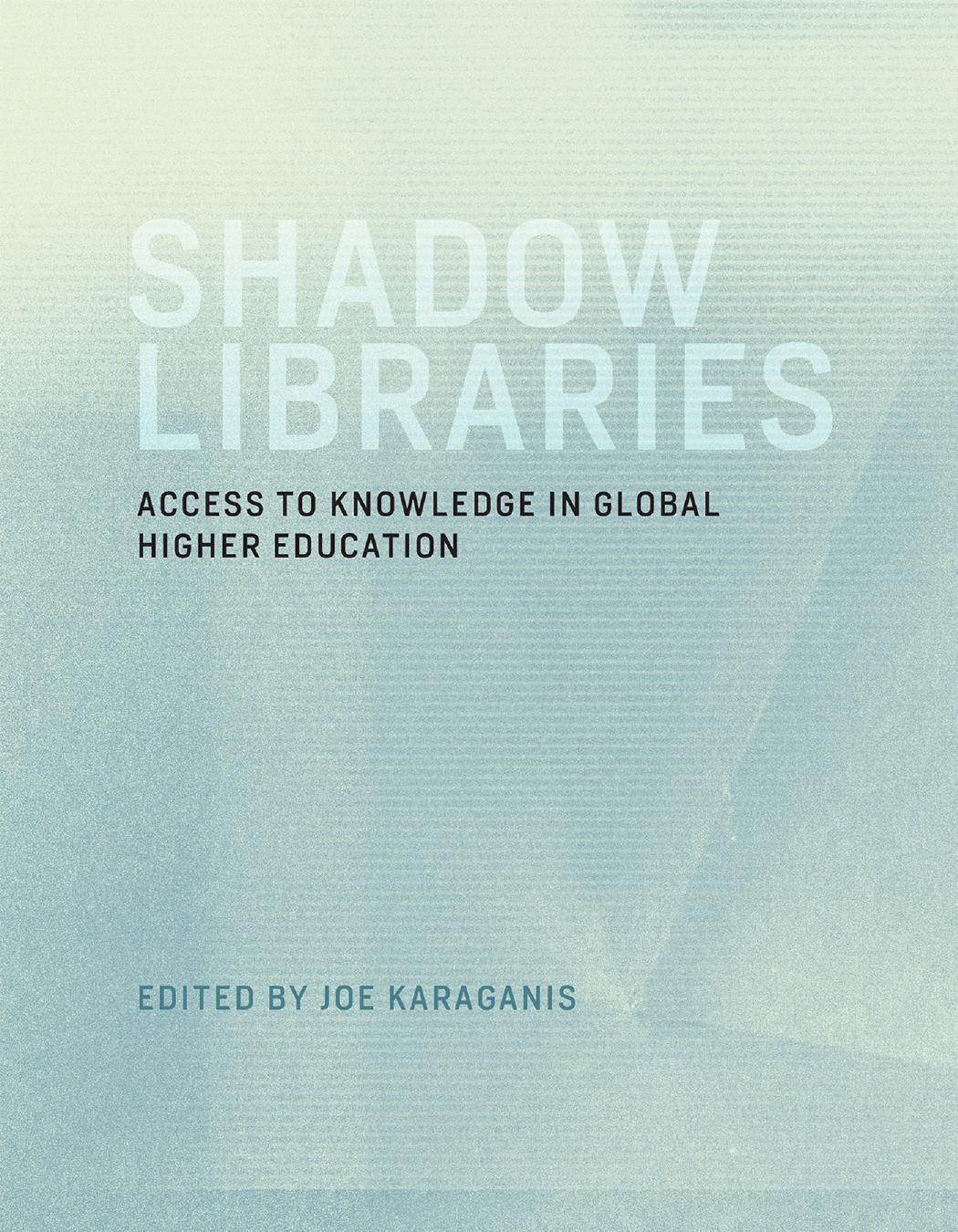

Most ebook files are in PDF format, so you can easily read them using various software such as Foxit Reader or directly on the Google Chrome browser.
Some ebook files are released by publishers in other formats such as .awz, .mobi, .epub, .fb2, etc. You may need to install specific software to read these formats on mobile/PC, such as Calibre.
Please read the tutorial at this link: https://ebookbell.com/faq
We offer FREE conversion to the popular formats you request; however, this may take some time. Therefore, right after payment, please email us, and we will try to provide the service as quickly as possible.
For some exceptional file formats or broken links (if any), please refrain from opening any disputes. Instead, email us first, and we will try to assist within a maximum of 6 hours.
EbookBell Team

4.8
84 reviewsHow students get the materials they need as opportunities for higher education expand but funding shrinks. From the top down, Shadow Libraries explores the institutions that shape the provision of educational materials, from the formal sector of universities and publishers to the broadly informal ones organized by faculty, copy shops, student unions, and students themselves. It looks at the history of policy battles over access to education in the post–World War II era and at the narrower versions that have played out in relation to research and textbooks, from library policies to book subsidies to, more recently, the several “open” publication models that have emerged in the higher education sector. From the bottom up, Shadow Libraries explores how, simply, students get the materials they need. It maps the ubiquitous practice of photocopying and what are―in many cases―the more marginal ones of buying books, visiting libraries, and downloading from unauthorized sources. It looks at the informal networks that emerge in many contexts to share materials, from face-to-face student networks to Facebook groups, and at the processes that lead to the consolidation of some of those efforts into more organized archives that circulate offline and sometimes online― the shadow libraries of the title. If Alexandra Elbakyan's Sci-Hub is the largest of these efforts to date, the more characteristic part of her story is the prologue: the personal struggle to participate in global scientific and educational communities, and the recourse to a wide array of ad hoc strategies and networks when formal, authorized means are lacking. If Elbakyan's story has struck a chord, it is in part because it brings this contradiction in the academic project into sharp relief―universalist in principle and unequal in practice. Shadow Libraries is a study of that tension in the digital era. Contributors
Balázs Bodó, Laura Czerniewicz, Miroslaw Filiciak, Mariana Fossatti, Jorge Gemetto, Eve Gray, Evelin Heidel, Joe Karaganis, Lawrence Liang, Pedro Mizukami, Jhessica Reia, Alek Tarkowski **